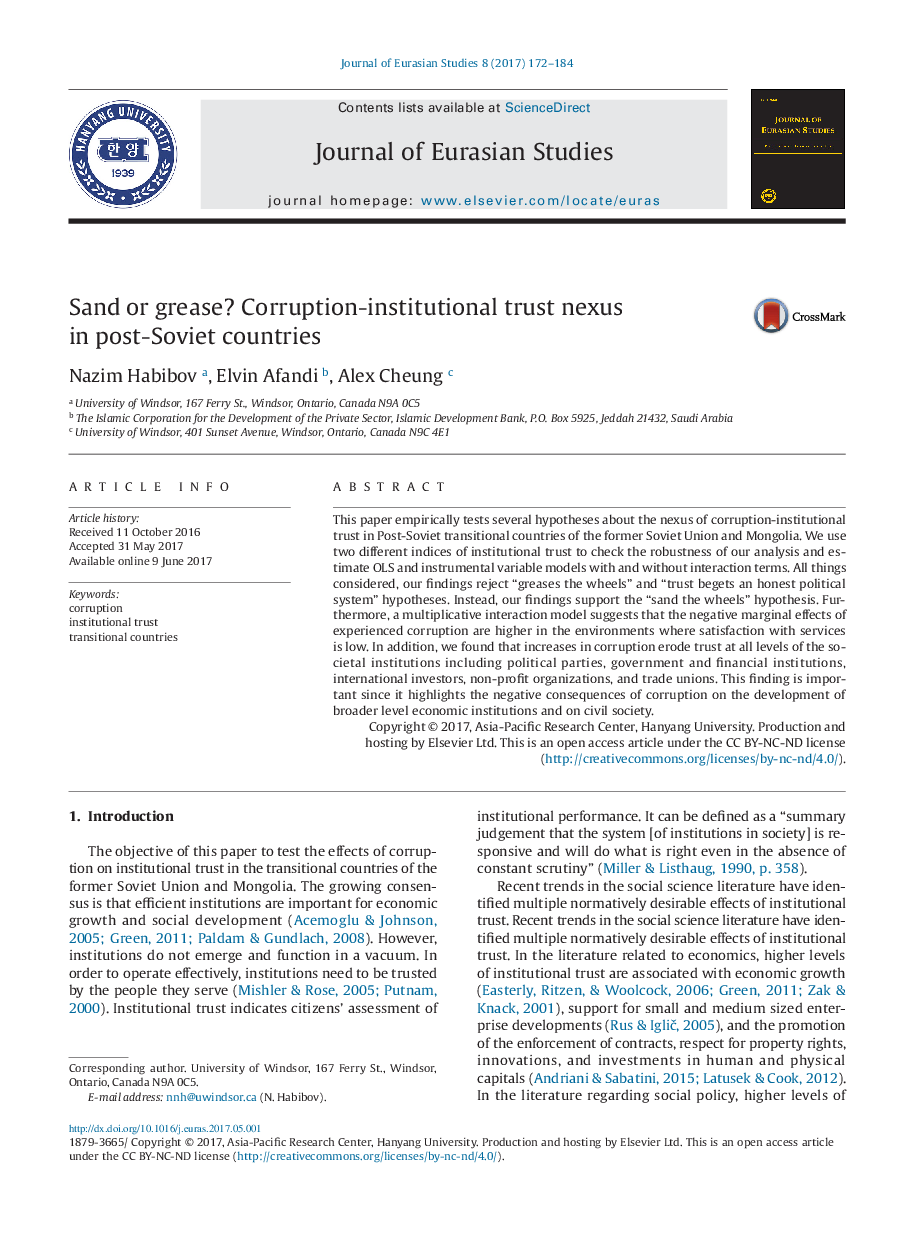| Article ID | Journal | Published Year | Pages | File Type |
|---|---|---|---|---|
| 5126589 | Journal of Eurasian Studies | 2017 | 13 Pages |
This paper empirically tests several hypotheses about the nexus of corruption-institutional trust in Post-Soviet transitional countries of the former Soviet Union and Mongolia. We use two different indices of institutional trust to check the robustness of our analysis and estimate OLS and instrumental variable models with and without interaction terms. All things considered, our findings reject “greases the wheels” and “trust begets an honest political system” hypotheses. Instead, our findings support the “sand the wheels” hypothesis. Furthermore, a multiplicative interaction model suggests that the negative marginal effects of experienced corruption are higher in the environments where satisfaction with services is low. In addition, we found that increases in corruption erode trust at all levels of the societal institutions including political parties, government and financial institutions, international investors, non-profit organizations, and trade unions. This finding is important since it highlights the negative consequences of corruption on the development of broader level economic institutions and on civil society.
